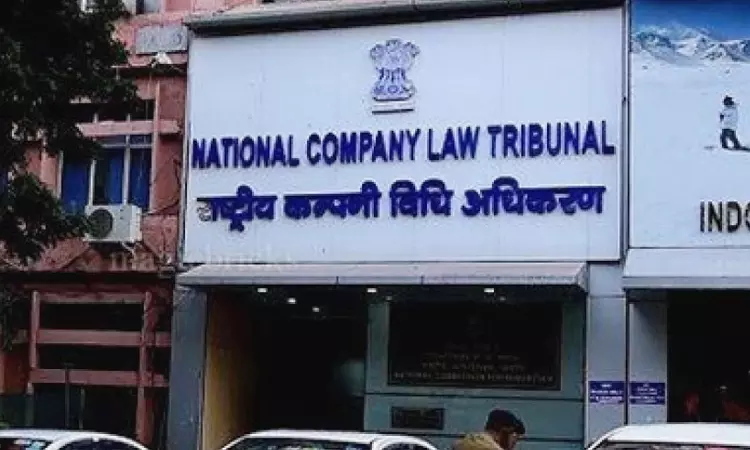Resolution Professional Can't Cherry-Pick Entries From Financial Records Of Corporate Debtor While Verifying Claims Of Creditors: NCLT New Delhi
Mohd Malik Chauhan
5 Aug 2025 7:45 PM IST
The National Company Law Tribunal (NCLT), New Delhi Bench of Shri Manni Sankariah Shanmuga Sundaram (Hon'ble Member Judicial) and Shri Atul Chaturvedi (Hon'ble Member Technical) has held that the Resolution Professional is obligated to verify the claims of creditors after considering all entries in the financial records of the corporate debtor. The RP cannot cherry-pick entries and...
The National Company Law Tribunal (NCLT), New Delhi Bench of Shri Manni Sankariah Shanmuga Sundaram (Hon'ble Member Judicial) and Shri Atul Chaturvedi (Hon'ble Member Technical) has held that the Resolution Professional is obligated to verify the claims of creditors after considering all entries in the financial records of the corporate debtor. The RP cannot cherry-pick entries and reject others that favour the creditors, as such an approach violates the principles of fairness and objectivity expected of the RP.
The present application has been filed under section 60(5) of the Insolvency and Bankruptcy Code, 2016 (IBC) seeking directions to admit BHEL's claims submitted via form B. Alternatively, directions have also been sought to admit the claims as reflected in corporate debtor's books and the amount arising out of an interim arbitral award.
The Applicant submitted that an interim Arbitral Award, dated 27.07.2017, has been passed by the Ld. Arbitral Tribunal in favour of Applicant basis the admission made by the Corporate Debtor. Therefore, the claim of the Applicant is not contingent as the same has been admitted by the Corporate Debtor and affirmed by the Ld. Arbitral Tribunal.
It was further submitted that the RP cannot ignore the admitted liabilities according to the books of account/balance sheet of the CD. As per the IBC, the RP is required to determine the financial position of the CD which is an essential pre-requisite for any resolution plan. Thus, it is impermissible to omit and ignore the financial position/liabilities of the CD which is disclosed in the books of account/balance sheets of the CD.
It was also submitted that even as per Regulation 14 of the CIRP Regulations, 2016, where the amount claimed by the creditors is not precise due to any contingency or other reasons, the RP is required to make a best estimate of the amount of the claim based on the information available with the RP.
Per contra, the Respondent submitted that the Phase I Claim and Phase II Claim are still under adjudication and have not attained finality. Accordingly, the same has been verified as being a contingent claim and correctly admitted at notional value of Re. 1 in accordance with law and judicial precedents.
It was also submitted that the Applicant has erroneously contended that it is a 'secured creditor' on the basis that it has a lien and charge in terms of the provisions of TOPA and SOGA.
The Tribunal noted that claims of phase II of the Nashik Project are duly supported by an Interim Arbitral Award which has not been stayed till date. Although the award has been challenged under section 34 of the Arbitration Act, no stay has been granted during the pendency of the proceedings. Notably, the Delhi High Court in a connected matter has upheld the same award thereby reinforcing its validity.
It observed that furthermore, the RP acknowledged the claims of the Applicant through e-mails as reflected in the books of the corporate debtor which were later denied without providing any satisfactory explanation for the same. The Supreme Court in Bishal Jaiswal held that entries in the books of account including in the balance sheet amounts to an acknowledgement under section 18 of the Limitation Act. Although the above principle was laid down in context of the Limitation Act, it squarely applies to the verification process under the IBC when supported by contractual and arbitral records.
The Tribunal further observed that Regulation 7 of the CIRP Regulations recognises courts or arbitral tribunals awards as valid proof of debt. This Regulation also permits financial statements as valid proof debt. In the present case, both the Arbitral Award and Financial Statement admit the liability of the liability of the corporate debtor.
It further observed that Regulation 14 provides that the RP is bound to take an estimate of the claims when they are imprecise. Furthermore, Regulation 14(2) states that admitted claims can be revised only upon receiving new information. In the present case, no new information was shown to have been received between the emails acknowledging the liability and emails denying the same. The Tribunal held that the RP's rejection of the Spare Packaged Claims based on Rs. 2.04 crore recoverable entry shown in the Books of Account is arbitrary especially when other entries acknowledge the liability under phase I and II.
It held that “Cherry-picking selective book entries while rejecting others that favour the creditor is not only arbitrary but also contrary to the RP's obligation of fairness and objectivity in claim verification.”
Accordingly, the present application was allowed.
Case Title: Shapoorji Pallonji & Co. Private Limited Sinnar Thermal Power Limited.
Case Number:I.A. NO. 782 OF 2025 IN C.P. IB NO 2561 (ND) OF 2019
Order Date: 22/07/2025



